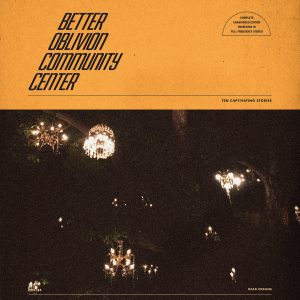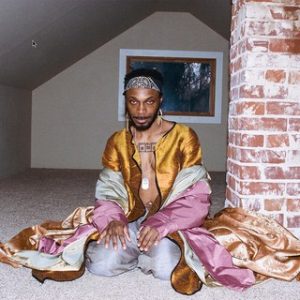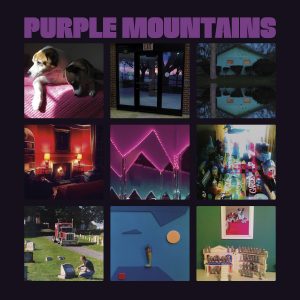The best albums of 2019
By Troy Hasselman, December 4 2019 —
2019 has been a rough year in nearly every way you can measure such a thing, but one area where it has came through in spades has been music. This year has brought fantastic releases from the artists profiled below and countless others in what has been one of the best years for new releases that I can remember. Here, in no particular order, are the five best albums released in 2019.

Better Oblivion Community Center – Better Oblivion Community Center
While this might not be the greatest album of 2019, you would be hard pressed to find one more charming or compulsively listenable than this collaboration between indie superstar songwriters Conor Oberst and Phoebe Bridgers. Better Oblivion Community Center suffers from none of the pitfalls that can arise when two star collaborators make a project together like lengthy running times and undercooked ideas. There is a remarkable lack of excess on this record, with the album clocking in at a clean 10 songs in 37 minutes.
All 10 of these songs are fully fleshed out, with thoughtful arrangements and engaging lyrics that show this album to have the same amount of effort put into that of either artists’ solo work. The songs on the album touch on topics like post-Trump political disillusionment, Bridgers’ home city of Los Angeles and the 2016 death of Oberst’s brother.
Songs like lead single “Dylan Thomas” bring a decidedly more uptempo arrangement than what we’re used to seeing from the pair while delivering some of the funniest lyrics of eithers career. It’s a record that brings in shades of the previous work of both artists while the two’s differing styles compliment each other to create a new fusion of their work.The directness of Oberst’s music comes together with the depth of Bridgers’ music to make something that is the best work Oberst has released in years and just the latest entry into Bridgers’ catalogue for someone that is proving to be one of the most exciting singer-songwriters working today.

JPEGMAFIA – All My Heroes are Cornballs
Fresh off the heels of the sizeable cult audience that JPEGMAFIA gained from 2018’s Veteran, he had an easy incentive to go in the same ferocious direction that he went on his previous album. JPEGMAFIA has spent the last two years building a name for himself for his aggression that is embodied in his intense live performances, including an explosive performance at Calgary’s Sled Island festival which was easily the best show I’ve seen this year. However, on All My Heroes are Cornballs JPEGMAFIA decided to go in a more lush direction, while preserving the weirdness of Veteran. This album isn’t necessarily less abrasive than it’s predecessor but moved its abrasion in a different direction with the songs built around more dense loops that value composition ahead of the noisy antagonism of Veteran. His anger is still here as well, with his targets still heavily informed by the internet culture that his music is birthed from, with incels, music bloggers and Twitter trolls all subjected to his ire across the album’s 18 songs. The artistic left turns that JPEGMAFIA has made on this album have shown his versatility as an artist and allowed for breathing room in how he chooses to evolve from this point out.

Woods + Segal – Hiding Places
The musical aesthetic of Hiding Places is emblematic from it’s album cover that shows a dilapidated Victorian mansion in the middle of a slow collapse positioned against a grey, overcast sky. This album is not pretty. A collaboration between veteran MC Billy Woods and underground producer Kenny Segal that deals with themes of poverty, Hiding Places reads out like a collection of loosely-linked short stories. There are no hooks and the tuned-out production makes it sound like the synthesizers on the album are melting down before your ears. Despite the lack of hooks, the songs are still as earwormy as any other hip-hop release from this year.
There is a passion for words in this album that isn’t measured up to from any release this year, hip-hop or otherwise. Wood’s wordplay, diction and non-sequiturs hold this album together and make for a fully engrossing listen. The running theme of poverty manifests itself in medical bills, unforwarded mail and delayed surgeries through the album, with Woods taking a look at the hard financial side of being a workmanlike rapper such as himself. Rather than flaunting his wealth, Woods is worried about the same financial issues as the rest of us. This kind of brutal honesty can lead to Hiding Places, being an uncomfortable listen with this vibe perfectly complimented by Segal’s dystopian-sounding production.

Purple Mountains – Purple Mountains
The death of David Berman mere weeks after the release of the debut album of Purple Mountains, his first new musical project since the end of Silver Jews in 2009, has become sadly inseparable from the music on this project which deals with themes of death, depression and loneliness. Though if Berman were still alive today this record would still be just as deserving of a spot on this list. The songs on this record were at once laugh-out-loud funny, brutally poignant, introspective and self-deprecating when this album was released in July and are still the same today.
While this is one of the most musically realized albums of Berman’s career — credit also goes to Berman’s backing band which consisted of the full lineup of Brooklyn indie rockers Woods — but the lyrics remain the star attraction here as they do on any of Berman’s output. Berman was one of the few rock lyricists capable of making music that measured up against real, honest-to-God poetry. The songs read like enthusiastically written prose poems, with Berman in top lyrical form here. While we can only now speculate on what kind of music from Berman we’ll be missing in his absence, we have this album, and not to mention his Silver Jews output, as a parting gift that encapsulated all of what he was as an artist.

Orville Peck – Pony
In the span of a year Orville Peck, the masked country troubadour behind Pony, has gone from obscurity to bona-fide stardom at the helm of the years second most popular country crossover hit. On Pony, Peck channels the outlaw country of Merle Haggard and Waylon Jennings, the baladeering and storytelling of singers like Dolly Parton and Bobbie Gentry and his own past in the East Vancouver punk scene into a wholly unique sound.
Tracks like “Dead of Night,” “Hope to Die” and “Turn to Hate” all bring a reverb-drenched outlaw swagger that keep one foot in the myriad influences and references to his work and another foot in the boundless future that his work embodies. The record draws heavily on heartbreak but Peck sounds anything but dejected on Pony, rather harnessing the charisma of his outlaw persona into his sound. Peck’s anonymity and mask could easily be dismissed as a gimmick if the songs weren’t so good but instead Pony is a work that stands on its own, being attached to one of the most intriguing musical personas to emerge in recent memory is just an added bonus.
